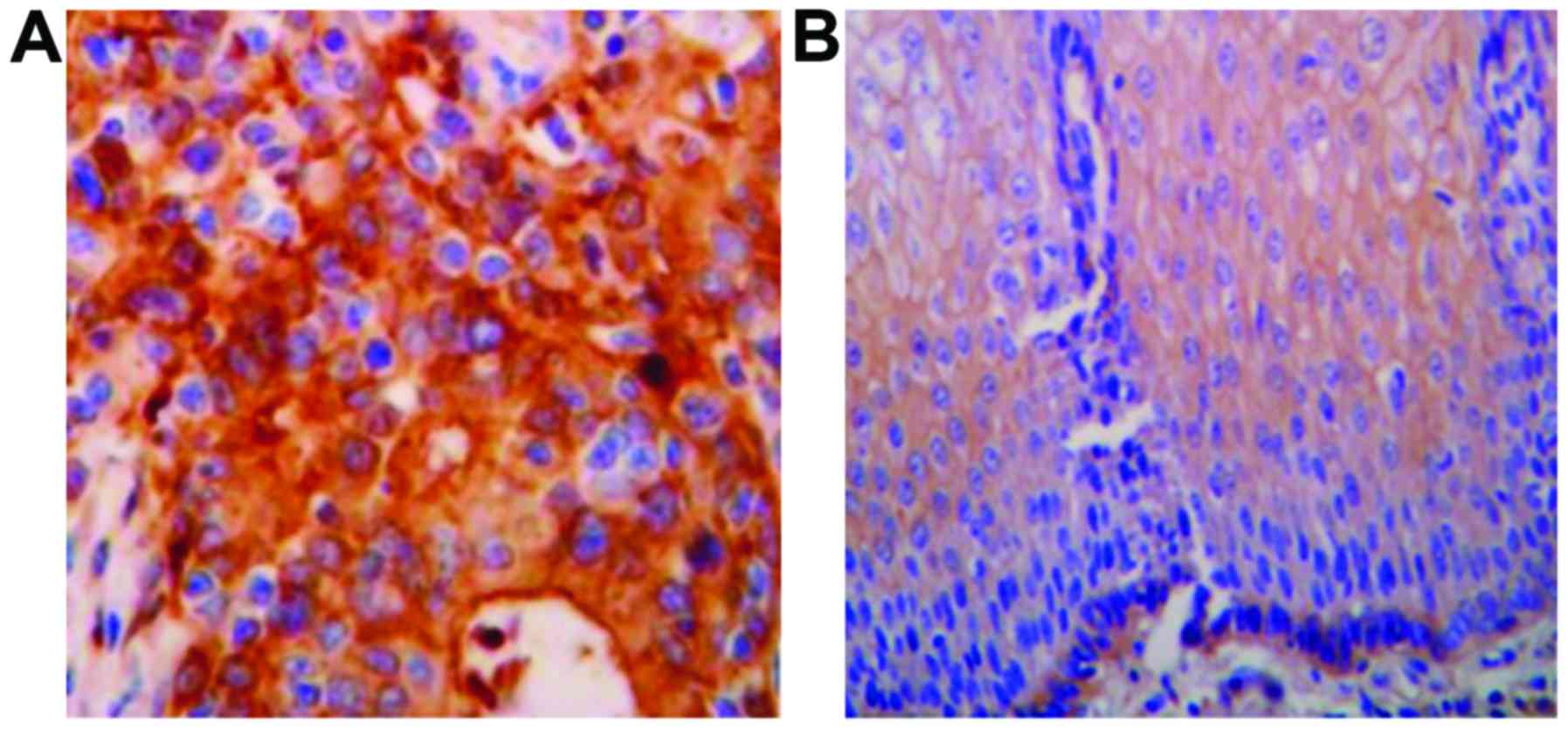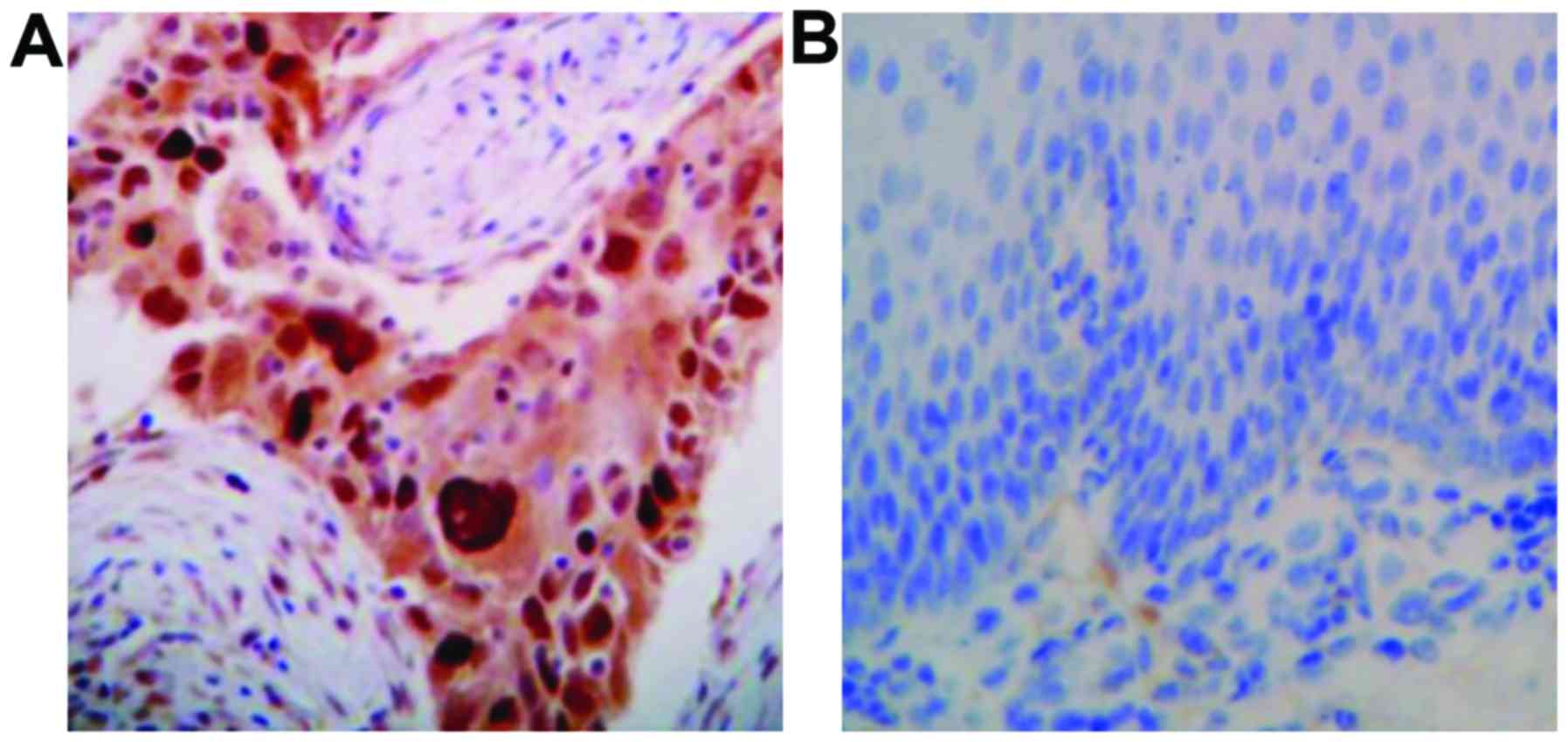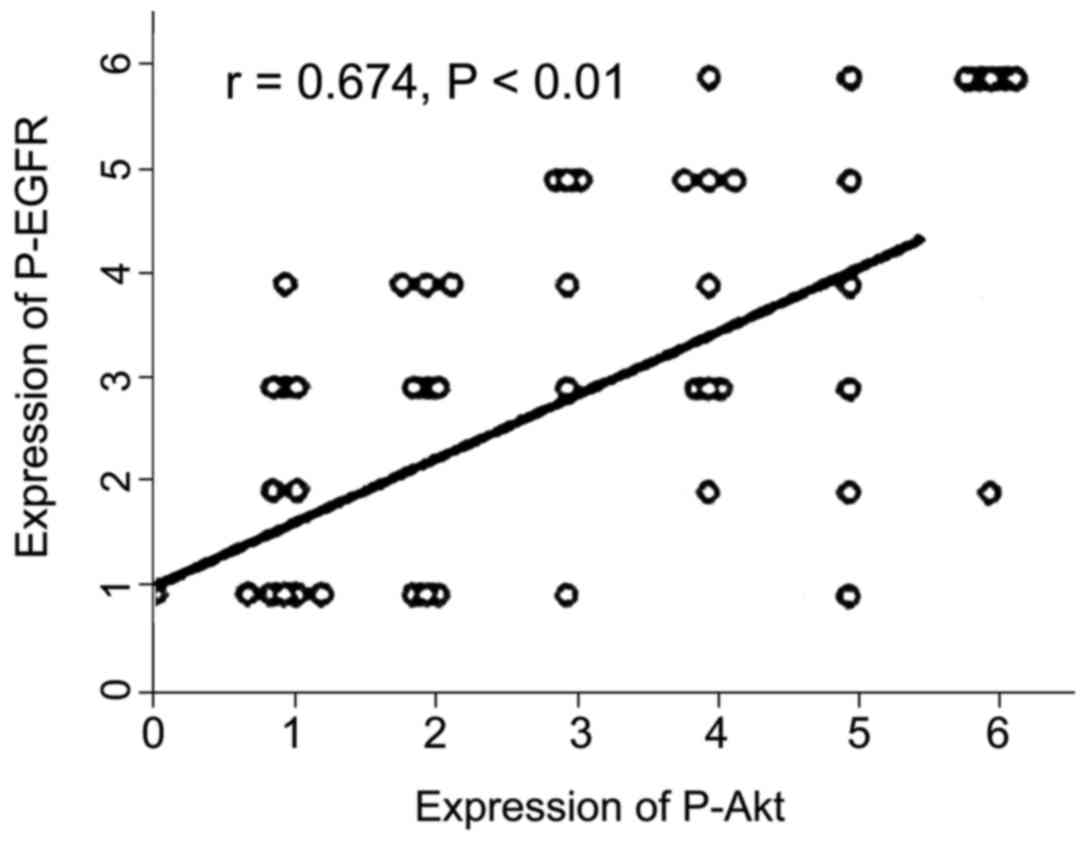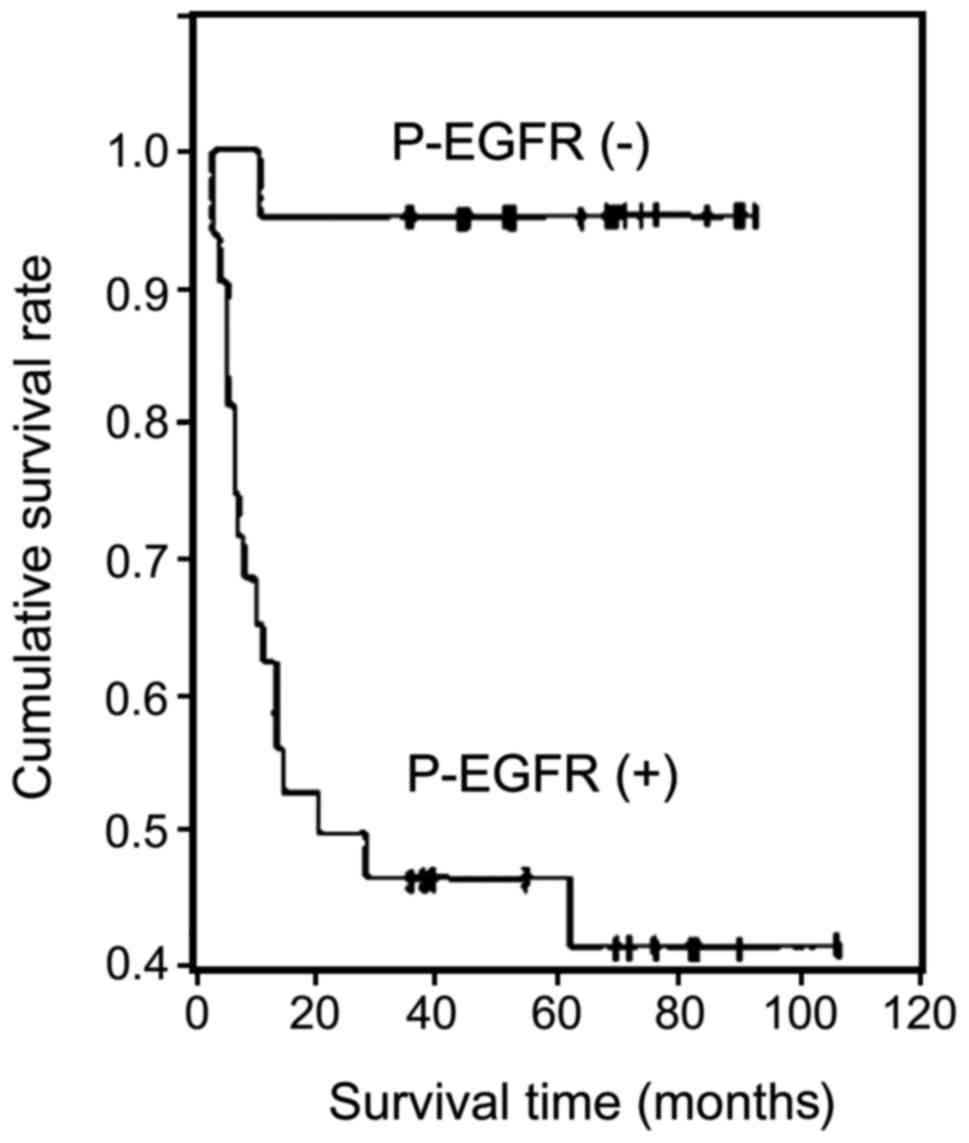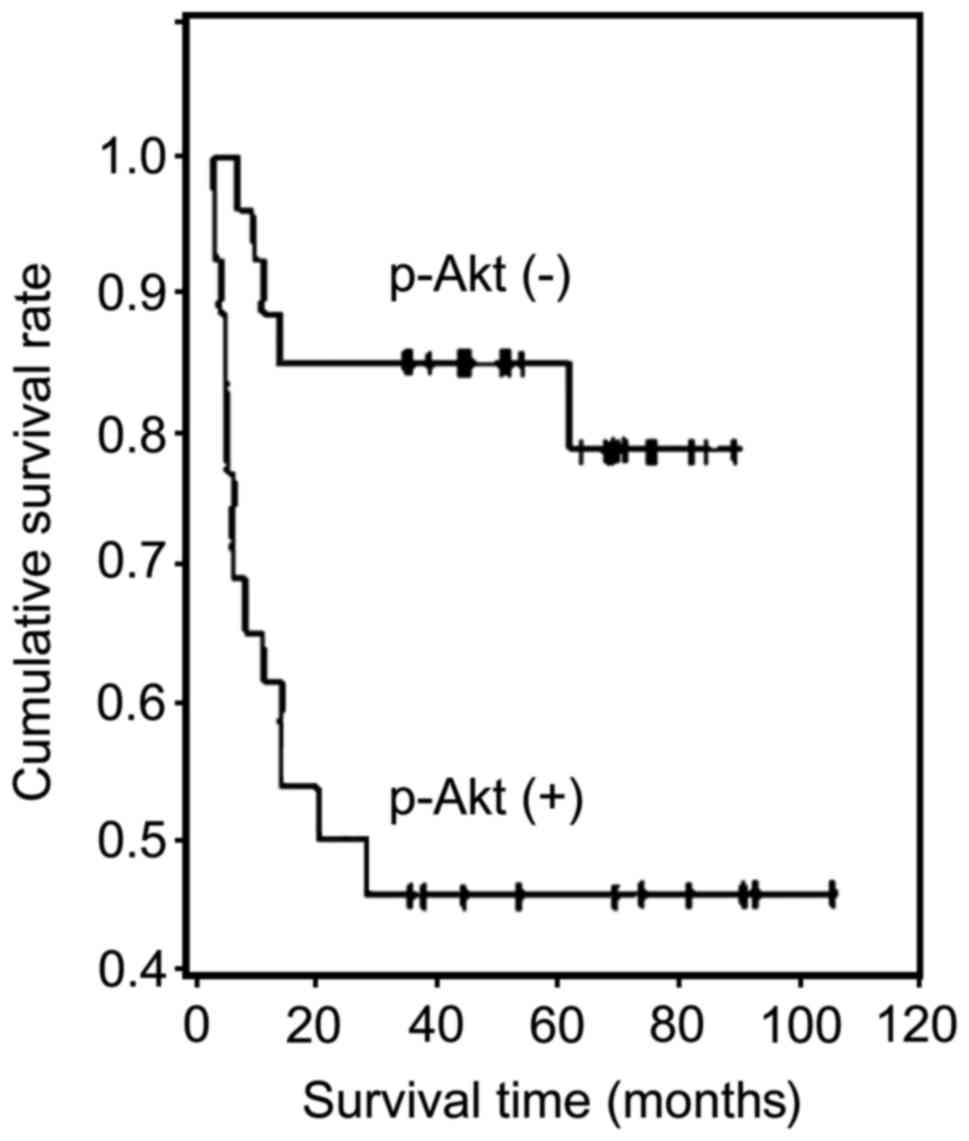|
1
|
Aleskandarany MA, Rakha EA, Ahmed MA, Powe
DG, Ellis IO and Green AR: Clinicopathologic and molecular
significance of phospho-Akt expression in early invasive breast
cancer. Breast Cancer Res Treat. 127:407–416. 2011. View Article : Google Scholar : PubMed/NCBI
|
|
2
|
Hembrough T, Thyparambil S, Liao WL,
Darfler MM, Abdo J, Bengali KM, Taylor P, Tong J, Lara-Guerra H,
Waddell TK, et al: Selected reaction monitoring (SRM) analysis of
epidermal growth factor receptor (EGFR) in formalin fixed tumor
tissue. Clin Proteomics. 9:52012. View Article : Google Scholar : PubMed/NCBI
|
|
3
|
Abdulwahab A, Sykes J, Kamel-Reid S, Chang
H and Brandwein JM: Therapy-related acute lymphoblastic leukemia is
more frequent than previously recognized and has a poor prognosis.
Cancer. 118:3962–3967. 2012. View Article : Google Scholar : PubMed/NCBI
|
|
4
|
Licitra L, Störkel S, Kerr KM, Van Cutsem
E, Pirker R, Hirsch FR, Vermorken JB, von Heydebreck A, Esser R,
Celik I, et al: Predictive value of epidermal growth factor
receptor expression for first-line chemotherapy plus cetuximab in
patients with head and neck and colorectal cancer: analysis of data
from the EXTREME and CRYSTAL studies. Eur J Cancer. 49:1161–1168.
2013. View Article : Google Scholar : PubMed/NCBI
|
|
5
|
Jia M and Souchelnytstkyi S: Comments on
the cross-talk of TGFβ and EGF in cancer. Exp Oncol. 33:170–173.
2011.PubMed/NCBI
|
|
6
|
Mints M and Souchelnytskyi S: Impact of
combinations of EGF, TGFβ, 17β-oestradiol, and inhibitors of
corresponding pathways on proliferation of breast cancer cell
lines. Exp Oncol. 36:67–71. 2014.PubMed/NCBI
|
|
7
|
Cree IA: Designing personalised cancer
treatments. J Control Release. 172:405–409. 2013. View Article : Google Scholar : PubMed/NCBI
|
|
8
|
Moghadamtousi SZ, Kadir HA, Paydar M,
Rouhollahi E and Karimian H: Annona muricata leaves induced
apoptosis in A549 cells through mitochondrial-mediated pathway and
involvement of NF-κB. BMC Complement Altern Med. 14:2992014.
View Article : Google Scholar : PubMed/NCBI
|
|
9
|
Asare GA, Afriyie D, Ngala RA, Abutiate H,
Doku D, Mahmood SA and Rahman H: Antiproliferative activity of
aqueous leaf extract of Annona muricata L. on the prostate, BPH-1
cells, and some target genes. Integr Cancer Ther. 14:65–74. 2015.
View Article : Google Scholar : PubMed/NCBI
|
|
10
|
Mimeault M and Batra SK: Frequent gene
products and molecular pathways altered in prostate cancer- and
metastasis-initiating cells and their progenies and novel promising
multitargeted therapies. Mol Med. 17:949–964. 2011. View Article : Google Scholar : PubMed/NCBI
|
|
11
|
Mimeault M, Johansson SL and Batra SK:
Pathobiological implications of the expression of EGFR, pAkt, NF-κB
and MIC-1 in prostate cancer stem cells and their progenies. PLoS
One. 7:e319192012. View Article : Google Scholar : PubMed/NCBI
|
|
12
|
Llovet P, Sastre J, Ortega JS, Bando I,
Ferrer M, García-Alfonso P, Donnay O, Carrato A, Jiménez A, Aranda
E, et al: Prognostic value of BRAF PI3K, PTEN, EGFR copy number,
amphiregulin and epiregulin status in patients with KRAS codon 12
wild-type metastatic colorectal cancer receiving first-line
chemotherapy with anti-EGFR therapy. Mol Diagn Ther. 19:397–408.
2015. View Article : Google Scholar : PubMed/NCBI
|
|
13
|
Pentheroudakis G, Kotoula V, De Roock W,
Kouvatseas G, Papakostas P, Makatsoris T, Papamichael D, Xanthakis
I, Sgouros J, Televantou D, et al: Biomarkers of benefit from
cetuximab-based therapy in metastatic colorectal cancer:
interaction of EGFR ligand expression with RAS/RAF, PIK3CA
genotypes. BMC Cancer. 13:492013. View Article : Google Scholar : PubMed/NCBI
|
|
14
|
Loupakis F, Cremolini C, Fioravanti A,
Orlandi P, Salvatore L, Masi G, Schirripa M, Di Desidero T,
Antoniotti C, Canu B, et al: EGFR ligands as pharmacodynamic
biomarkers in metastatic colorectal cancer patients treated with
cetuximab and irinotecan. Target Oncol. 9:205–214. 2014. View Article : Google Scholar : PubMed/NCBI
|
|
15
|
Petrelli F, Borgonovo K and Barni S: The
predictive role of skin rash with cetuximab and panitumumab in
colorectal cancer patients: a systematic review and meta-analysis
of published trials. Target Oncol. 8:173–181. 2013. View Article : Google Scholar : PubMed/NCBI
|
|
16
|
Li P, Yang R and Gao WQ: Contributions of
epithelial-mesenchymal transition and cancer stem cells to the
development of castration resistance of prostate cancer. Mol
Cancer. 13:552014. View Article : Google Scholar : PubMed/NCBI
|
|
17
|
Pan Y, Zhang Y, Li Y, Hu H, Wang L, Li H,
Wang R, Ye T, Luo X, Zhang Y, et al: Prevalence, clinicopathologic
characteristics, and molecular associations of EGFR exon 20
insertion mutations in East Asian patients with lung
adenocarcinoma. Ann Surg Oncol. 21 Suppl 4:S490–S496. 2014.
View Article : Google Scholar : PubMed/NCBI
|
|
18
|
Cheng L, Ren W, Xie L, Li M, Liu J, Hu J,
Liu BR and Qian XP: Anti-EGFR MoAb treatment in colorectal cancer:
limitations, controversies, and contradictories. Cancer Chemother
Pharmacol. 74:1–13. 2014. View Article : Google Scholar : PubMed/NCBI
|
|
19
|
Nishikawa M, Miyake H and Masato F:
Enhanced sensitivity to sunitinib by inhibition of Akt-1 expression
in human castration-resistant prostate cancer PC3 cells both in
vitro and in vivo. Mol Cancer Ther. 13:1949–1960. 2014.
|















